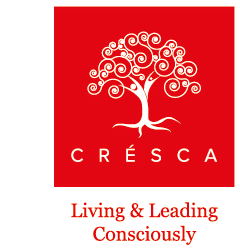A good traveler has no fixed plans
And is not intent upon arriving
A good artist lets his intuition
Lead him wherever it wants
Lao Tzu
My doctoral work has been a big part of my life in the past year and 2016 has started with a desire to give greater intentionality and purpose to my research. Being grounded in the action research tradition, my doctoral work is not on people but with people, not in intellectual construct and theory alone but in actively researching something that matters to me and, hopefully, to the world at large, through the process of actively engaging in the world with my inquiry. This past year has just shown me what a big ask that is and it has evoked a mixed bag of tremendous positive energy and moments of feeling this is quite an impossible ask, especially since one has to be willing to abandon one’s original research idea and keep fine-tuning the purpose of one’s inquiry, based on what is emerging in one’s research process. So this process feels akin to holding on and letting go at the same, to be truly willing to use myself as a primary instrument of my inquiry – to be open in a way that might feel risky and vulnerable and yet hold the seeds for precious insight and personal growth.
The focus of my inquiry is currently around bridging inner and outer worlds. While my work in the past ten years has been primarily on the inside (myself and those of my clients), I am now keenly interested to see the intersection between these two worlds in a way that is seamless, connected and giving life to each other. This takes me to many intersections in my work – between psychology and philosophy, between business and behavior, process and people and between being and doing. I believe that inner reflective work needs to be brought into the mainstream of leadership and life and not be something we “do” in isolation of our work in the world or de-contextualised from our business or leadership deliberations. If reflective practices can enable a mindful way of being, in leaders and beyond, can we then hope to find greater congruence in life – between who we are and what we do – a congruence in the being and doing, versus either being a standalone? I am interested in how these are intricately connected, co-dependent and enabling of each other. These are some of my starting assumptions that I hope to explore through my research process.
A key aspect of a doctoral that is action research based is that it is deeply situated in one’s own inquiry with the self. The topic has to have personal meaning for me and be a very much live and active inquiry in my life. Hence, this inquiry and research is as much about how I bridge my own inner and outer worlds.
One of the ways we are actively encouraged to write about our research and our experiences in the world is through other forms of knowing, especially presentational forms such as art, dance, poetry etc. These artful ways of interpreting experience might give greater texture and perspective beyond my primarily intellectual ways of knowing the world. Now, I don’t feel like I have an artistic bone in my body, so when I heard this gentle prodding from my doctoral supervisor, over the past many months, I thought it impossible and ran from the idea!
But this past week, I have had a number of intense experiences over a program that I was a part of. A program where many new experimentation’s were made, which asked of me to access parts of myself I never knew existed, as a way to bridge the inner and outer worlds of the participants I was working with. And as I have been carrying my inquiry into my life, an intention to write differently and to discover artful ways of knowing, I sat to write about my experiences and out flowed some poetry. To all the seasoned poets out there, this is untainted and straight without editing or having any inkling of what makes for poetic craft. So here goes:
Voices
The inner voice and the inner noise
Both chiming in, disturbing any poise
Stilling it down doesn’t seem to work
But listening to it is equally hard work!
The chatter inside, non-stop and true
To make ample sense of the outer views
And yet the inner, has no place
Without the outer, giving it grace
The outer, in turn, grand and strong
Shows up in ways that feel right and wrong
The inner says “hey, come back in”
And we can have a chat about what is under your skin
So I honor both as I step into life
Trying to fight the man-made divide
As I act to reflect and reflect to act
Can I find that elusive balancing act?




